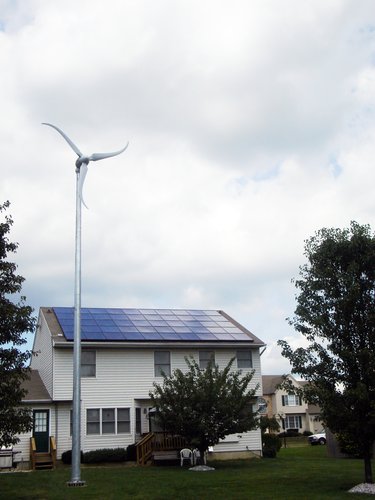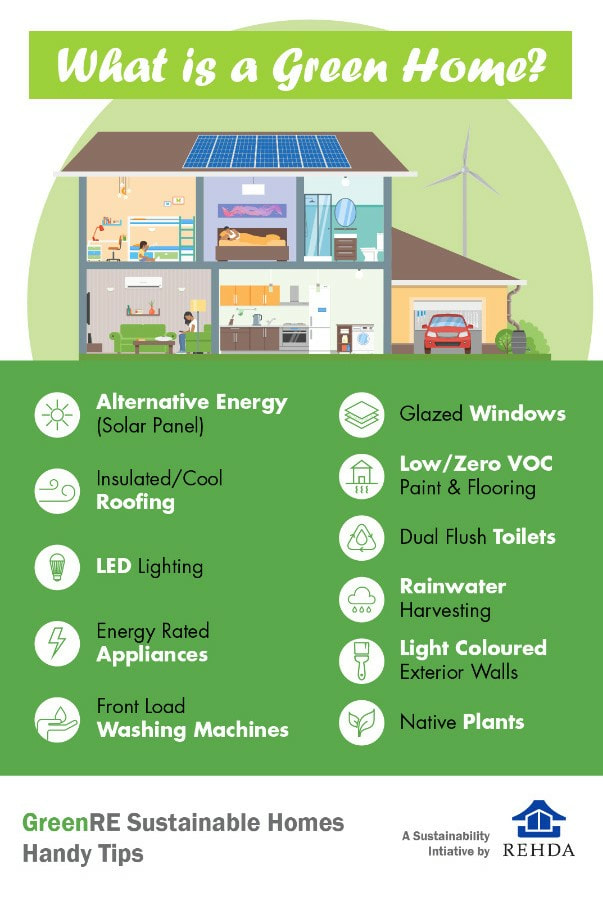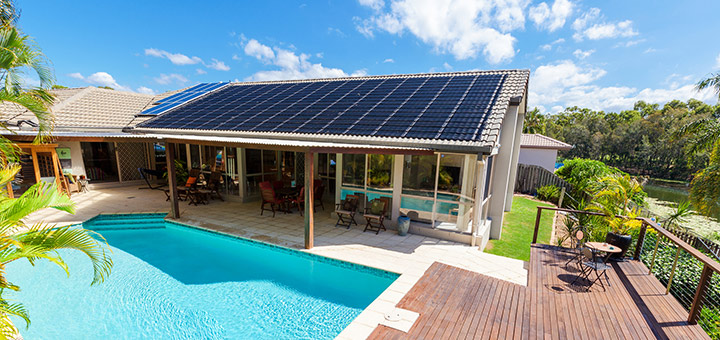
In today's world, achieving energy efficiency and sustainable living has become a priority for many individuals seeking to make a positive impact on the environment.
This article presents ten practical lifestyle changes that can help you on your journey towards a more sustainable lifestyle. From embracing minimalism to practicing ethical consumption, these changes are designed to not only reduce your energy consumption but also promote a more environmentally conscious way of living.
Join us as we explore the path to a greener, more sustainable future.
Conservation Practices
Conservation practices play a crucial role in reducing energy consumption and promoting sustainable living.
One essential aspect of conservation is water conservation. Water is a precious resource, and conserving it is vital for the environment and future generations. Simple practices like fixing leaky faucets, using low-flow showerheads, and collecting rainwater for gardening can significantly reduce water usage.
Another important aspect of conservation is sustainable transportation. The transportation sector is a significant contributor to greenhouse gas emissions, so adopting sustainable transportation options is essential for reducing our carbon footprint. This can include using public transportation, carpooling, cycling, or walking whenever possible. Additionally, investing in electric or hybrid vehicles can greatly reduce emissions.
Embracing Sustainability
To fully embrace sustainability, individuals must actively incorporate eco-friendly practices into their daily routines. This involves making conscious choices that promote a greener lifestyle. Here are three practical ways to embrace sustainability:

- Embrace sustainable fashion: Opt for clothing made from organic or recycled materials, support ethical and fair trade brands, and prioritize quality over quantity. By choosing sustainable fashion, you reduce the environmental impact of the fashion industry and support a more ethical and responsible approach to clothing production.
- Use eco-friendly transportation: Instead of relying solely on cars, consider alternative modes of transportation such as walking, cycling, or using public transportation. If a car is necessary, choose electric or hybrid vehicles that produce fewer emissions. By reducing your reliance on fossil fuel-powered transportation, you contribute to cleaner air and a healthier environment.
- Practice mindful consumption: Be conscious of what you buy and consume. Avoid single-use plastics, reduce food waste, and choose products with minimal packaging. By reducing your consumption and opting for sustainable alternatives, you minimize waste and contribute to a more sustainable future.
Waste Reduction Strategies
Implementing effective waste reduction strategies is crucial in achieving energy efficiency and sustainable living. By adopting proper waste management techniques, individuals can significantly reduce their environmental impact and contribute to the preservation of natural resources.
Recycling initiatives play a vital role in waste reduction, as they divert materials from landfills and conserve energy and resources used in the production process. Separating recyclable materials such as paper, plastic, glass, and metal and sending them to recycling facilities ensures that these materials are reused and transformed into new products.
Additionally, composting organic waste can reduce the amount of waste sent to landfills while producing nutrient-rich soil for gardening.
Embracing Minimalism
Embracing minimalism can have numerous benefits in your journey towards sustainable living.
By adopting a minimalist lifestyle, you can reduce your consumption, decrease waste, and live a more intentional and fulfilling life.
In order to embrace minimalism, consider decluttering your living space, practicing mindful shopping, and focusing on experiences rather than material possessions.
Benefits of Minimalism
Minimalism offers numerous benefits for individuals looking to adopt a more sustainable and efficient lifestyle. By embracing minimalism, you can experience the following advantages:

- Decluttering benefits: Minimalism encourages you to declutter your living space, which can lead to a more organized and stress-free environment. Removing excess possessions allows you to focus on what truly matters and reduces the time and energy spent on maintaining and cleaning unnecessary items.
- Efficient use of resources: Minimalist home design promotes the efficient use of resources such as water, electricity, and materials. By adopting a minimalist approach, you can reduce your environmental footprint and save money on utility bills. Simplifying your living space also means consuming fewer resources and contributing less waste.
- Improved well-being: Living with less can have a positive impact on your mental health and overall well-being. Minimalism encourages mindfulness, gratitude, and intentionality. It allows you to prioritize experiences and relationships over material possessions, leading to a greater sense of freedom, contentment, and fulfillment.
Practical Minimalism Tips
One practical tip for adopting a minimalist lifestyle and achieving energy efficiency is to focus on reducing the number of unused electronic devices in your home. Decluttering your space from unnecessary gadgets not only helps to free up physical space but also reduces energy consumption. Many electronic devices, even when turned off, still draw power in standby mode, known as vampire power. By eliminating unused devices, you can significantly lower your energy consumption and save on utility bills.
Additionally, embracing sustainable fashion is another aspect of practical minimalism. Choose quality, timeless pieces that are versatile and durable, reducing the need for frequent purchases. Opt for eco-friendly materials and support ethical brands that prioritize sustainable production practices.
Energy-Efficient Habits
In order to achieve energy efficiency in your journey to sustainable living, it is important to adopt energy-efficient habits.
Simple energy-saving tips, such as turning off lights when not in use and using natural lighting during the day, can make a significant impact.
Additionally, considering cost-effective energy solutions like installing LED light bulbs and programmable thermostats can further reduce energy consumption.
Simple Energy-Saving Tips
Implementing energy-efficient habits is essential for individuals seeking to achieve sustainable living. By making simple changes to our daily routines, we can significantly reduce our energy consumption and contribute to a greener future. Here are three practical energy-saving tips that can make a big difference:
- Invest in Energy-Saving Appliances: Replace old, inefficient appliances with energy-saving models. Look for appliances with the Energy Star label, as they are designed to consume less energy without sacrificing performance.
- Opt for Eco-Friendly Transportation: Whenever possible, choose eco-friendly transportation options such as walking, biking, or using public transportation. These alternatives help reduce greenhouse gas emissions and promote a healthier lifestyle.
- Unplug and Switch Off: Get into the habit of turning off lights, electronics, and appliances when they are not in use. Also, remember to unplug chargers and power strips, as they continue to draw energy even when not in use.
Cost-Effective Energy Solutions
To achieve cost-effective energy solutions and develop energy-efficient habits, individuals must consistently prioritize and incorporate sustainable practices into their daily lives.

One of the most effective ways to reduce energy consumption and save money is by using cost-effective lighting options. Switching from traditional incandescent bulbs to energy-efficient LED bulbs can significantly lower electricity bills. LED bulbs use up to 80% less energy and can last up to 25 times longer than traditional bulbs.
Additionally, investing in energy-efficient appliances can also lead to substantial savings. Look for appliances with the Energy Star label, as these have been certified to meet strict energy efficiency standards.
Benefits of Energy Efficiency
One key advantage of practicing energy efficiency is the significant reduction in energy consumption, resulting in substantial cost savings. By adopting energy-efficient habits and incorporating sustainable practices into our daily lives, we can not only save money but also contribute to reducing our carbon footprint.
Here are three benefits of energy efficiency:
- Lower energy bills: Energy-efficient practices, such as using energy-saving appliances, insulating our homes, and optimizing heating and cooling systems, can lead to significant cost savings on energy bills.
- Environmental impact: By reducing energy consumption, we can decrease our reliance on fossil fuels and decrease greenhouse gas emissions. This helps in mitigating climate change and preserving the environment for future generations.
- Improved comfort and well-being: Energy-efficient technologies and practices often lead to improved indoor air quality, temperature control, and overall comfort in our homes and workplaces.
Utilizing Renewable Resources
Renewable resources offer a sustainable solution for energy needs in the journey towards achieving energy efficiency and sustainable living.
By harnessing the power of renewable energy sources, such as solar, wind, hydro, and geothermal, individuals can reduce their reliance on non-renewable fossil fuels and contribute to a greener future.
Sustainable energy practices, like installing solar panels on rooftops or utilizing wind turbines, not only help to reduce carbon emissions but also provide long-term cost savings.

Renewable resources are abundant, widely available, and do not deplete over time, making them a reliable and environmentally friendly option.
Incorporating renewable energy into our daily lives not only benefits the planet but also promotes energy independence and empowers individuals to take control of their energy consumption.
Incorporating Composting
Composting is a valuable practice that offers numerous benefits for both individuals and the environment. By composting organic waste, such as fruit and vegetable scraps, leaves, and grass clippings, you can reduce the amount of waste sent to landfills while creating nutrient-rich soil for gardening.
To effectively incorporate composting into your sustainable lifestyle, it is important to follow a few tips and tricks. One essential tip is to balance the carbon-to-nitrogen ratio in your compost. This means adding a mix of carbon-rich materials, such as dried leaves or straw, and nitrogen-rich materials, such as food scraps or fresh grass clippings. This balance will help speed up the decomposition process and create high-quality compost.
Another important tip is to turn the compost regularly. This helps to aerate the pile and distribute moisture and nutrients evenly. Turning the compost every few weeks or so will also prevent odors and promote faster decomposition.
Once your compost is ready, you can use it in your garden or for potted plants. The nutrient-rich soil created through composting is excellent for improving the health and fertility of your plants. Simply spread a layer of compost on top of your garden beds or mix it into potting soil for potted plants.
Benefits of Composting
Incorporating composting into your lifestyle offers numerous benefits for achieving energy efficiency in your journey to sustainable living. Composting is the process of decomposing organic waste, such as food scraps and yard trimmings, into nutrient-rich soil.

Here are three key benefits of composting:
- Reduces landfill waste: By composting organic waste, you divert it from ending up in landfills where it produces methane, a potent greenhouse gas. This helps reduce the environmental impact of waste management.
- Improves soil health: Compost enriches soil by adding essential nutrients, improving its structure, and promoting the growth of beneficial microorganisms. Healthy soil retains moisture better, reduces erosion, and supports healthier plant growth.
- Reduces the need for chemical fertilizers: Compost provides natural, organic nutrients to plants, reducing the reliance on synthetic fertilizers. This not only saves money but also helps protect water sources from harmful runoff.
Incorporating composting techniques into your lifestyle is a simple yet impactful step towards a more sustainable future.
Composting Tips and Tricks
To optimize the benefits of composting and ensure effective waste management, it is essential to implement practical tips and techniques into your sustainable lifestyle.
Composting is a simple yet effective method of recycling organic waste into nutrient-rich soil. To start, choose the right composting technique that suits your space and needs. There are various options available, such as traditional composting bins, worm composting, or even composting in a small apartment using a composting bin specifically designed for indoor use.
When choosing a composting bin, consider factors such as size, ventilation, and ease of use. Remember to balance the ingredients in your compost pile by adding a mix of green and brown materials, turning the pile regularly to aerate it, and keeping it moist but not overly wet.
Adopting a Green Lifestyle
Embracing eco-friendly habits is essential in the pursuit of a sustainable lifestyle. Adopting a green lifestyle involves making conscious choices that minimize our impact on the environment. Here are three key aspects to consider:
- Green Transportation: Opt for alternative modes of transportation such as biking, walking, or using public transportation whenever possible. This reduces carbon emissions and promotes a healthier lifestyle.
- Sustainable Fashion: Choose clothing made from organic, recycled, or ethically sourced materials. Support brands that prioritize fair labor practices and minimize the use of harmful chemicals in their production processes.
- Reduce, Reuse, Recycle: Practice the 3 R's to minimize waste and conserve resources. Reduce your consumption by buying only what you need, reuse items as much as possible, and recycle materials that can be repurposed.
Practicing Ethical Consumption
Practicing ethical consumption is an important aspect of adopting a green lifestyle and promoting sustainability.

Ethical fashion and responsible consumerism are key components of ethical consumption.
Ethical fashion refers to clothing that is produced in a way that minimizes harm to the environment and respects workers' rights. This means choosing clothes made from sustainable materials, such as organic cotton or recycled fibers, and supporting brands that prioritize fair trade and ethical manufacturing practices.
Responsible consumerism, on the other hand, involves making conscious choices about the products we buy and the companies we support. It means considering the environmental impact, social responsibility, and ethical practices of the brands we choose to purchase from.
Engaging in Organic Gardening
Engaging in organic gardening promotes sustainability and reduces environmental impact. By growing your own fruits, vegetables, and herbs without the use of synthetic chemicals, you can enjoy numerous benefits while contributing to a healthier planet.
Here are three organic gardening tips to get you started:
- Use natural fertilizers and compost: Instead of relying on chemical fertilizers, opt for organic alternatives like compost, manure, or bone meal. These natural fertilizers enrich the soil, improve plant health, and reduce the risk of water contamination.
- Practice companion planting: By growing different plants together, you can create a natural balance that discourages pests and promotes healthy growth. For example, planting marigolds alongside tomatoes can deter harmful insects.
- Implement water conservation techniques: Collect rainwater in barrels or use drip irrigation systems to minimize water waste. Mulching can also help retain moisture in the soil, reducing the need for frequent watering.
Frequently Asked Questions
How Can I Reduce My Energy Consumption While Still Maintaining a Comfortable Lifestyle?
To reduce energy consumption while maintaining a comfortable lifestyle, consider implementing energy-efficient practices such as using energy-saving appliances, adjusting thermostat settings, insulating your home, utilizing natural light, and choosing energy-efficient transportation options like carpooling or using public transportation.
What Are Some Practical Ways to Incorporate Composting Into My Daily Routine?
Composting in small spaces and adopting a zero waste lifestyle are practical ways to incorporate composting into your daily routine. By composting organic waste, you can reduce landfill waste and create nutrient-rich soil for your plants.

Are There Any Specific Habits or Practices That Can Help Me Achieve Energy Efficiency in My Home?
To achieve energy efficiency in your home, there are several habits and practices you can adopt. Implementing energy-saving tips such as using LED lights, sealing air leaks, and practicing eco-friendly home practices can significantly reduce your energy consumption.
How Can I Incorporate Ethical Consumption Into My Daily Life, Beyond Just Buying Sustainable Products?
Incorporating ethical consumption into daily life involves exploring ethical shopping alternatives and embracing a minimalist lifestyle to reduce waste. By being mindful of our choices and prioritizing sustainability, we can make a positive impact on the environment and society.
What Are Some Beginner-Friendly Tips for Organic Gardening, Especially for Those Who Live in Urban Areas?
Urban gardening challenges can be overcome with beginner-friendly tips. Despite limited space, urban dwellers can experience the benefits of organic gardening. Practical strategies include container gardening, vertical gardening, and utilizing community gardens.